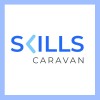Unlocking the Power of Employee Development: Tips and Strategies
In today’s dynamic workplace, employee development plays a pivotal role in shaping human resource management and Learning and Development (L&D) strategies. Recent data underscores the critical importance of focusing on employee development to drive engagement, retention, and performance. Let’s delve into why prioritizing employee development is essential and explore effective strategies for implementing it.
Redefining the Employee Development Process
Historically, employee development was viewed as an individual responsibility, often done outside of work hours. Managers had limited resources to support skill development within their teams, leading to a mismatch between employee skill growth and organizational strategy. However, research across 6500 organizations reveals that growth and development are key drivers of employee engagement, retention, and performance. This underscores the need for organizations to revamp their approach to employee development, making it more strategic and supportive.
Finding Balance in Employee Development
An effective employee development strategy should align business needs with individual aspirations and current skills. By harmonizing these aspects, organizations can ensure mutual benefits for both employees and the company. Balancing business requirements with personal goals fosters employee engagement and propels the organization towards its objectives. Striking this equilibrium is vital for achieving both short-term wins and long-term success.
The Impact of Employee Development on Retention
Studies indicate that lack of development opportunities is a common reason for employees to leave organizations. Employees who perceive a lack of Learning and Development prospects are more likely to seek opportunities elsewhere. Continuous development and career progression should be integral to the employee experience, preventing turnover and sustaining organizational stability.
Cultivating a Culture of Employee Development
Building a culture of employee development requires organizational commitment at all levels. Clearly communicating the company’s vision and career paths to employees is essential. Steps to foster this culture include identifying company needs, creating career paths, and engaging in regular developmental discussions. When employees understand the company’s vision and growth opportunities, they become more motivated and aligned with organizational objectives.
Empowering Employee Engagement through Development
Development opportunities significantly drive employee engagement, especially when aligned with personal interests. Self-reflection plays a crucial role in the development process, enabling employees to identify their strengths, values, and motivations. Career paths and development plans empower employees to envision their progression within the organization, boosting engagement and fostering a sense of purpose.
Employee Development and Performance
Investing in a Learning Management System (LMS) for employee development yields improvements in both individual and organizational performance. Companies that prioritize employee development experience enhanced growth, increased funding, and improved performance indicators. Implementing a successful employee development strategy requires top-down buy-in, ingraining a culture of development within the organization’s ethos.
HR leaders and L&D professionals have a compelling case for adopting a formal approach to employee development. A structured program of continuous learning can significantly enhance motivation and performance among employees, driving organizational success.
In Conclusion
Employee development stands at the forefront of modern organizational priorities. By aligning business needs with individual aspirations, companies can elevate engagement, retention, and performance. It falls to HR and L&D professionals to steer the employee development journey, fostering progress and success for both individuals and the organization.

Skills Caravan
Discover Skills Caravan’s multi-product Learning Experience Platform, Content Library, Engagement platform, Credentialing, and Impact reporting to streamline and enhance your Learning and Development process.



